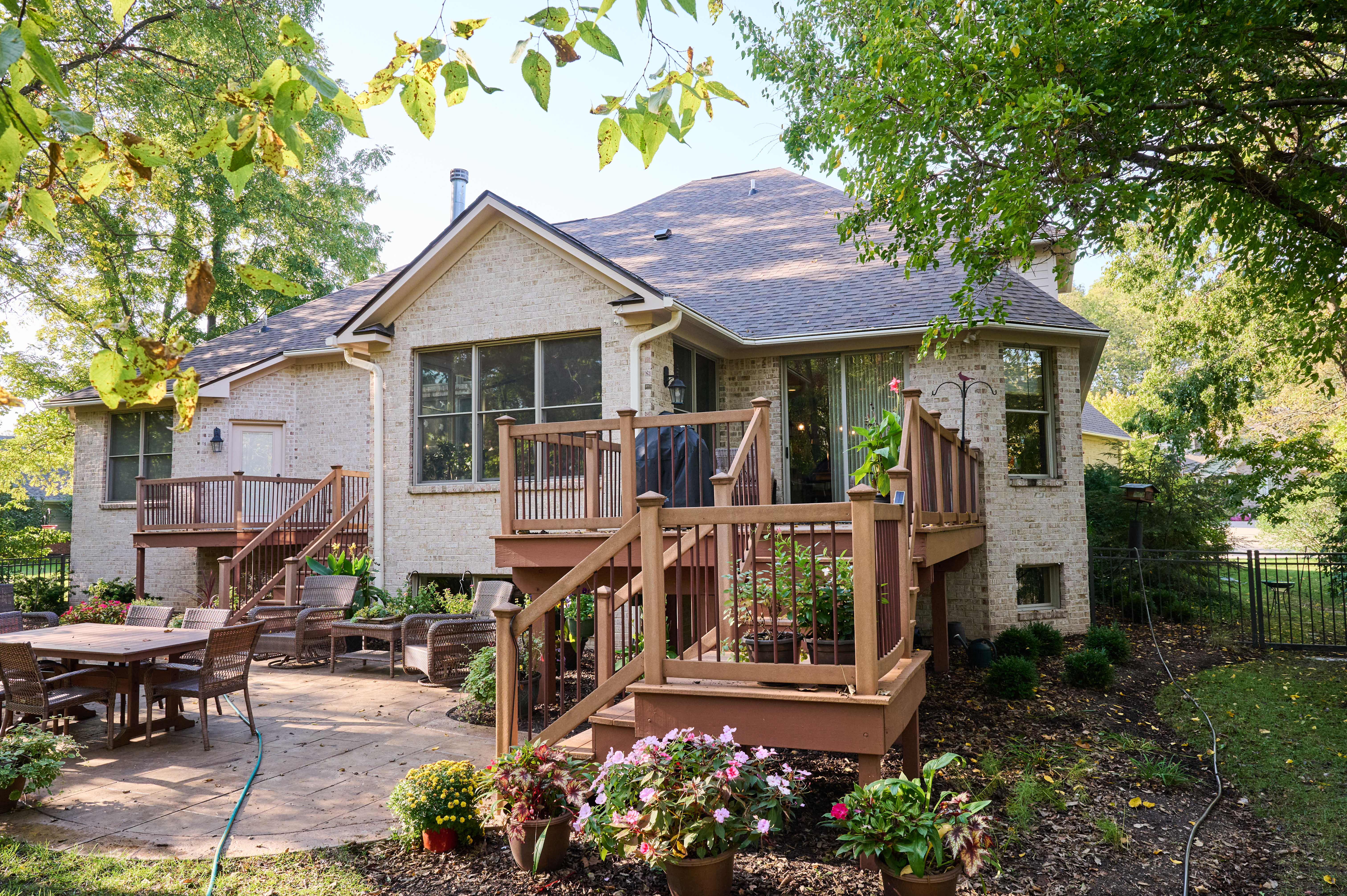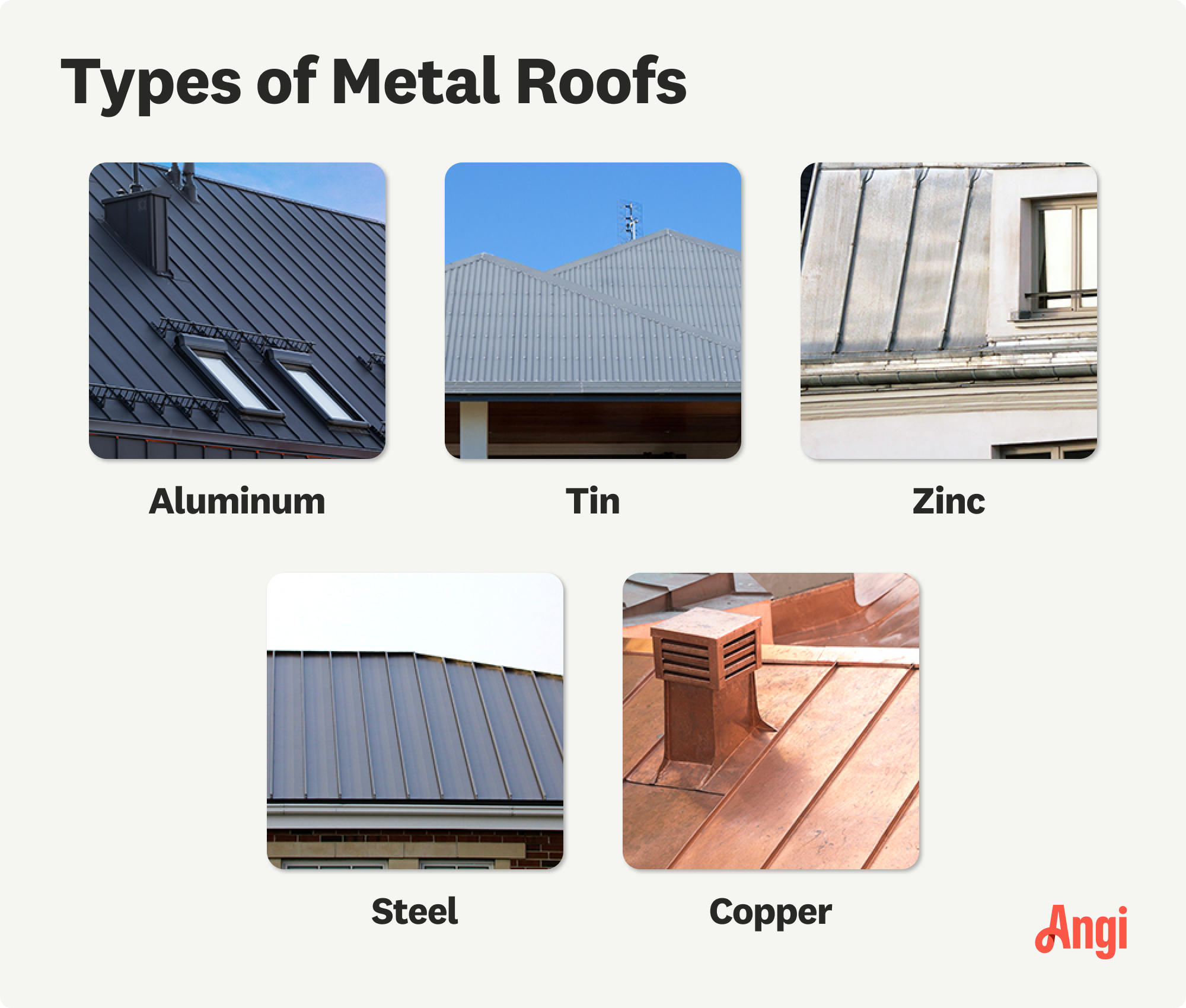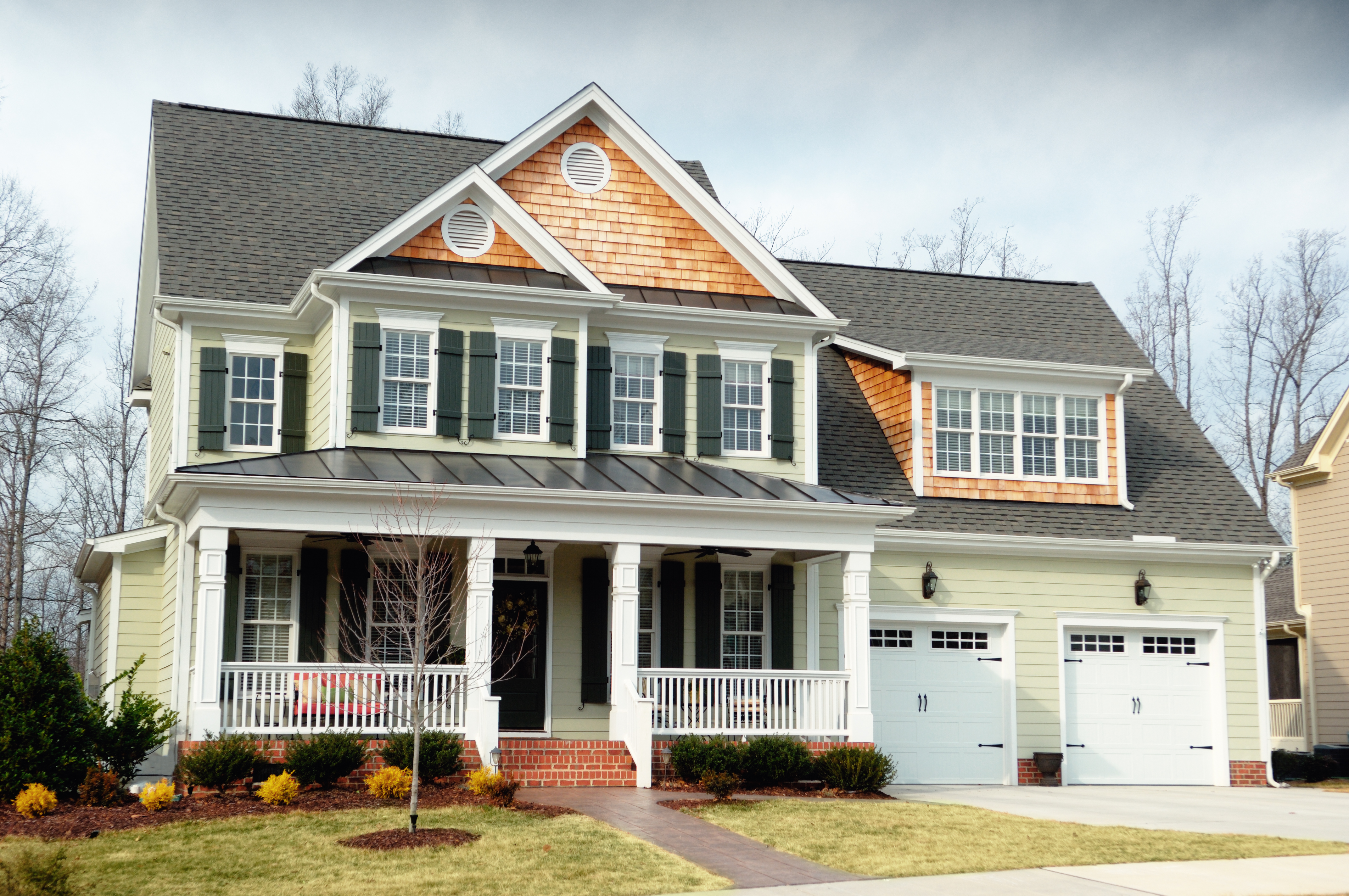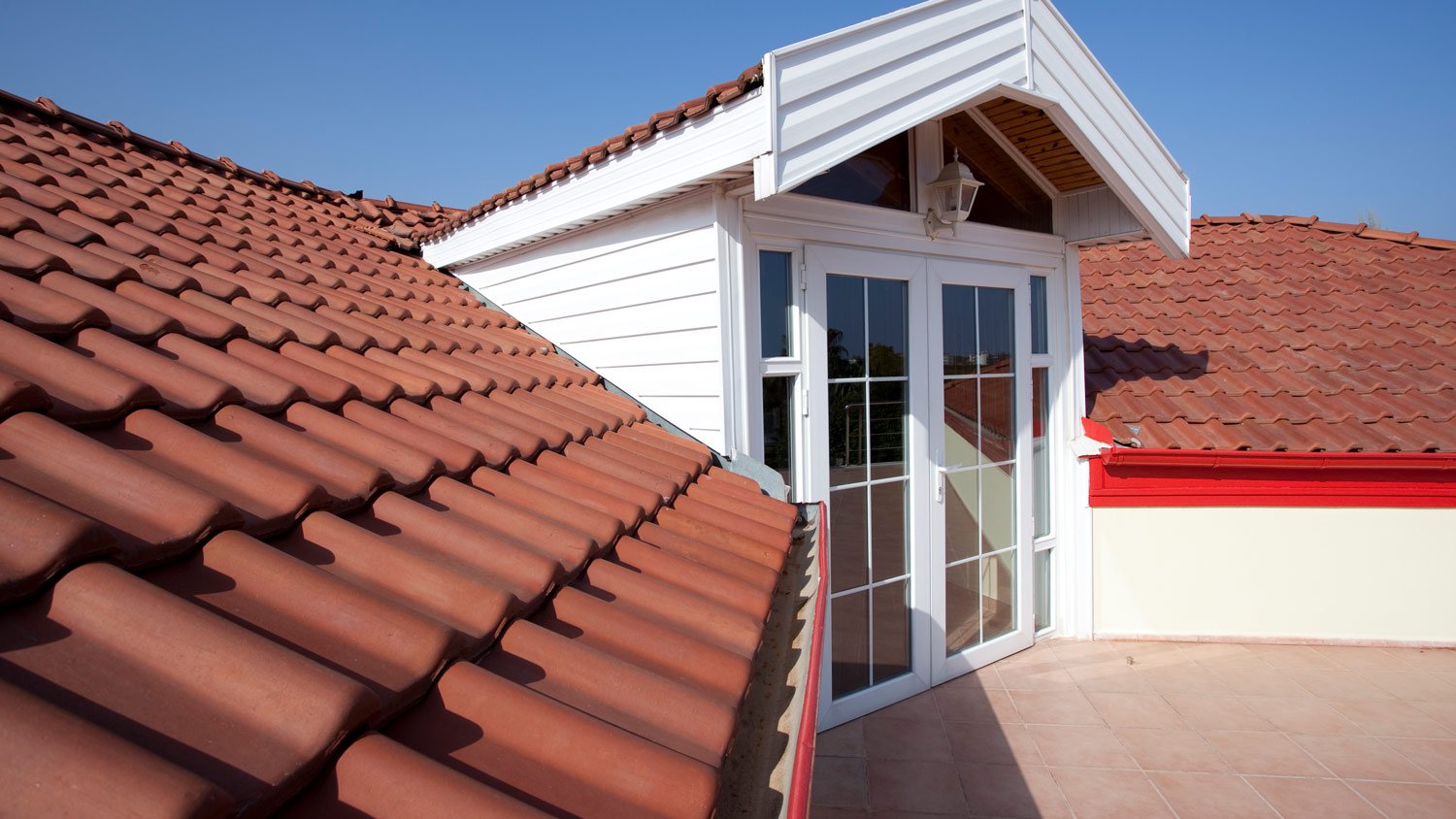
Find out average roof shingle repair costs, factors affecting pricing, such as material and labor, and how to save on your next roof repair project.
A metal roof in Tampa costs $13,838, on average, with a price range of $3,200 to $30,000. A roofing pro will assess your roof size, material preferences, and installation complexity to determine your total.


The size of your roof and the specific materials you choose will play the biggest role in determining your total.
Installing a metal roof costs an average of $11 per square foot, with a price range of $4 to $30, depending on material choices.
A standing seam metal roof will stand up best to the above-average rainfall and provide the lowest risk of leaks.
Consider the roof gauge carefully, as thicker metal costs more but resists damage from extreme weather in the area.
Metal roof costs in Tampa average $13,838, and most projects total between $3,200 and $30,000. The surface area of the roof planes you’re covering and the type of metal you choose are the most significant cost factors, but roof style can also affect your costs. Consider investing a bit more in a thicker metal roofing material that will resist denting from the tropical storms and thunderstorms that frequent the area.
On the extreme ends of the cost range, you could pay anywhere from $8,202 to $19,691 for a metal roof in Tampa. There are a few things that will determine where your specific price falls within that wide range.
Metal roof installers in Tampa will take material costs into account and then price your project based on the size. As such, the larger the roof planes you’re covering, the higher your costs will be. Expect to pay an average of $11 per square foot for metal roof installation in Tampa.
The average home in the city is just under 1,600 square feet, with a roof size of 2,000 square feet. The average cost to replace your entire roof with metal is $22,000. However, using metal as an accent material for improved curb appeal is common in Tampa, so many residents pay much less.
| Roof Size (sq. ft.) | Average Cost |
|---|---|
| 100 | $1,100 |
| 250 | $2,750 |
| 500 | $5,500 |
| 1,000 | $11,000 |
| 1,500 | $16,500 |
| 2,000 | $22,000 |
| 2,500 | $27,500 |

The type of metal you choose can bring your cost per square foot as low as $4 or as high as $30, so this is another important factor to consider. Aluminum roofs cost the least, but they’ll dent more easily than steel and can rust more quickly with exposure to the above-average rainfall in the city. Copper is the most expensive option, but it adds the most curb appeal and value, and it also boasts the longest lifespan, even in the somewhat extreme Tampa climate.
| Metal Type | Cost (per sq. ft.) |
|---|---|
| Aluminum | $4–$11 |
| Copper | $15–$30 |
| Steel | $6–$16 |
| Tin | $5–$12 |
| Zinc | $6–$12 |
There are three primary styles of metal roofs: corrugated metal, metal shingles, and standing seam panels. Corrugated roofs can cut your installation costs in half, but they’re not terribly popular in Tampa because they have the lowest curb appeal. Standing seam roofs are the most popular and will resist roof leaks best, which is an important factor in Tampa, which sees almost 1.5 times the national average amount of rainfall.
Metal shingles cost somewhere in the middle, and they’re a very popular style in Tampa. They can match the look of traditional clay roofs, which are prevalent in Florida, and conforming to neighborhood standards can help boost home value even more.
| Roof Style | Cost (per sq. ft.) | Pros | Cons |
|---|---|---|---|
| Corrugated | $3.50–$15 | Budget-friendly | Curb appeal |
| Metal shingles | $7–$22 | Mimics clay tile | More prone to leaks |
| Standing seam | $7–$30 | Resists leaks | Expensive |
Metal roofs come in a variety of thicknesses or gauges, with lower gauges representing thicker material. The standard 26-gauge roof is more likely to dent from blown debris. The Tampa Bay Area is considered one of the most vulnerable to damage from extreme weather, so a 24-gauge roof, while more expensive, is worthwhile in the city. Aim for a 24-gauge roofing material or even 22-gauge if your budget allows.
The labor for metal roof installation in the city costs an average of $6,900 and accounts for 50% of your total. Even if you know how to install a metal roof, paying a metal roofer in Tampa to get the job done is worthwhile. Professional installation will ensure maximum curb appeal and will also avoid installation mistakes, which can quickly lead to expensive water damage when exposed to the heavy and concentrated rainfall that hits the city.
You’ll need a permit for your roofing project, and while your contractor will handle pulling and eventually closing out the permit, you’ll have to pay the permit fees. The City of Tampa charges an average of $181.43 for a roof replacement permit, which includes a plan review cost of $72.57.
Metal shingle roofing has reflective pigments to act as radiant barriers, and their shape creates an air gap or thermal break between the metal and the roof deck, stopping conductive heat transfer, making them great for summer efficiency.
A metal roof will increase your home value both because it improves curb appeal and because it instills confidence in buyers that the roof will last for decades, even when exposed to the extreme weather in Florida. Metal is naturally reflective, so unlike other roofing materials, a metal roof will reduce solar heat gain and help keep your home cool through the brutally hot summers. Buyers in Tampa love to see metal roofing for this reason, so it’s a desirable home upgrade.
Investing in a metal shingle roof that mimics the popular clay tile roofs in Tampa could boost home value even more, as it offers the same bump to energy efficiency but also conforms better to the local standards.
Home is the most important place on earth, which is why Angi has helped more than 150 million homeowners transform their houses into homes they adore. To help homeowners with their next project, Angi provides readers with the most accurate cost data and upholds strict editorial standards. We survey real Angi customers about their project costs to develop the pricing data you see, so you can make the best decisions for you and your home. We pair this data with research from reputable sources, including the U.S. Bureau of Labor Statistics, academic journals, market studies, and interviews with industry experts—all to ensure our prices reflect real-world projects.
Want to help us improve our cost data? Send us a recent project quote to [email protected]. Quotes and personal information will not be shared publicly.
From average costs to expert advice, get all the answers you need to get your job done.

Find out average roof shingle repair costs, factors affecting pricing, such as material and labor, and how to save on your next roof repair project.

Dealing with a visibly damaged roof or leak? Learn about roof repair costs in Columbus to see how much you’ll need to budget for a permanent solution.

Learn about roof replacement costs in Columbus and what factors are at play to budget accurately and make sure you’re getting a fair price.

There is a calculation for how many soffit vents you need, depending on your square footage. Discover where to install them and what happens to your attic air during winter.

If you’re upgrading your roof with stone-coated steel, you should be aware of the total project cost. Learn what will impact your final stone-coated steel roofing costs.

What's a cupola? Is it possible to have one on my home? What do they look like? Learn all about the variety of cupolas you can add to your home or barn.